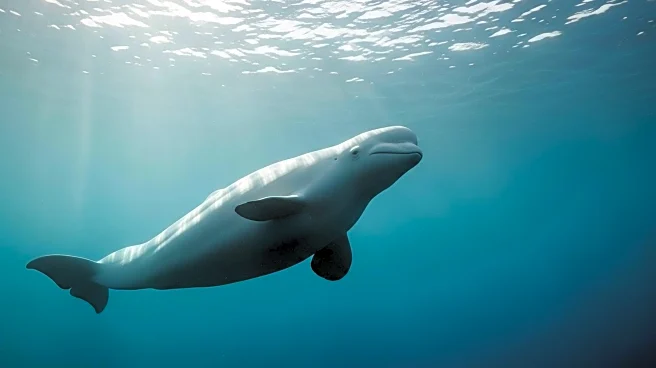What's Happening?
Marineland, a defunct marine park in Canada, has threatened to euthanize 30 beluga whales if the federal government does not provide emergency funding. The park's plan to export the whales to China was blocked by Fisheries Minister Joanna Thompson, who cited concerns over continued captivity and exploitation. Marineland, which closed in 2024 due to declining attendance and animal abuse allegations, claims it lacks the resources to care for the whales. The park's ultimatum has sparked controversy, with animal welfare activists condemning the threat as repugnant.
Why It's Important?
The situation highlights ongoing challenges in animal welfare and the ethical treatment of marine life. The closure of Marineland and the subsequent threat to euthanize the whales underscore the impact of legislation like Canada's 'Free Willy' bill, which bans breeding and entertainment use of marine mammals. This case raises questions about the responsibilities of private entities and governments in ensuring the welfare of captive animals. The broader implications include potential shifts in public policy and increased scrutiny of marine parks and their practices.
What's Next?
The Canadian government may face pressure to intervene and find a solution that ensures the welfare of the whales. This could involve exploring alternative funding sources or relocation options that comply with legal and ethical standards. The situation may also prompt further legislative action to prevent similar scenarios in the future, potentially influencing international policies on marine animal captivity and welfare.
Beyond the Headlines
The threat to euthanize the whales highlights ethical dilemmas in animal conservation and the responsibilities of former entertainment venues. It raises questions about the long-term impacts of captivity on marine life and the need for sustainable solutions that prioritize animal welfare. The case may influence cultural attitudes towards marine parks and the treatment of animals in captivity.









